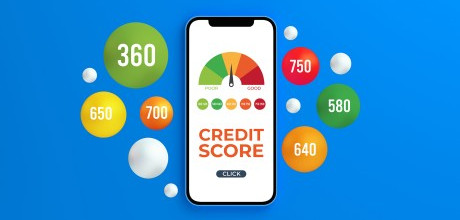Good scores and ratings
What is a good credit score?
Different credit reporting bodies calculate your credit score slightly differently. If your credit score is out of 1,200 then as a rule of thumb a score above 853 is excellent while above 661 is good. If your credit score is out of 1,000, above 690 is excellent and above 540 is good.
How do you improve your credit score?
Start early. The sooner you establish a reliable repayment history, the better – so if you plan to apply for a mortgage in the next few years, or take out a major loan, you should manage your credit health now by ensuring there are no negative information such as a default listed against you for not making your debt obligations and by ensuring that you pay your bills on time.
The way in which you manage your repayments on your credit and loan accounts is one of the top factors in most credit scoring models. If you have been making repayments on your existing accounts on time, this is factored into your score and it will impact your credit score positively.
How to improve your credit score
Your credit score will change over time as your credit behaviour changes e.g. if you apply for and/or take on more debt, default on your account or if your repayment behaviour changes by skipping your monthly account payments.
Lenders subscribe to one or more of the credit reporting bodies, sharing their customers’ comprehensive credit reporting information for inclusion in your credit report. So, not all credit reporting bodies have the exact same information, it all depends on which credit reporting body your lender shares your credit reporting information with.
How often does your credit score change?
Changes to your credit score depend entirely on how often your credit report is updated. While they are mostly updated frequently, there is sometimes a lag between when you perform an action and when it is reported by the lender to the credit reporting body they subscribe to. It's only when the credit reporting body has the updated information that it will impact your credit score.
Information that's added or deleted can affect your credit score. And newer information tends to have more of an impact than much older information. In general, your credit score won’t change that much over time if your use of credit doesn’t change. But it's important to note that each time your score is calculated it's taking into consideration the information that is on your credit report at that time. So, as the information on your credit report changes, your credit score can also change.
Does opening a credit card hurt your credit score?
When you apply for a credit card or loan, an enquiry is recorded on your credit report. Your credit report shows a 5-year enquiry history, which is factored into your credit score. Making multiple applications in a short period of time can negatively impact your credit score.
One application for a credit card is not likely to hurt your score but if you've applied for several other cards recently, it could make an impact as numerous applications can be perceived as desperation for credit or it could indicate to lenders that you're taking on too many accounts in a short period of time, a move that could make it difficult to afford all your new monthly payments.
When you apply for a credit card, lenders want to know how you've handled your existing debt, the number of accounts you have open, whether you've made your account payments on time, if you have defaults listed against you for non-payment by other lenders, and the total amount of credit you have access to across your credit accounts and loans.
If you close a credit card or pay off a personal loan will that automatically improve your score?
The total amount of credit you have is one factor affecting your credit score. The more credit you have, the more it will affect (and probably reduce) your credit score – but this could be offset by good repayment behaviour. Reducing the amount of credit, you have may be good for your credit score – but again this is only one factor taken into consideration.
Your current credit report and the way you have managed your credit obligations to date will affect how a particular action may impact your score.



